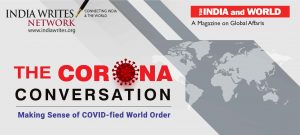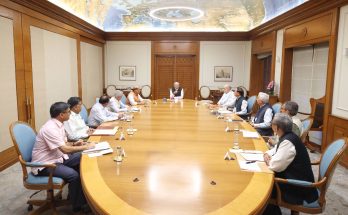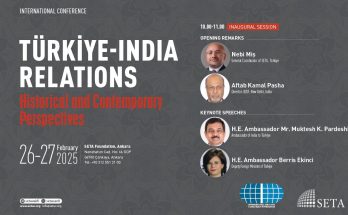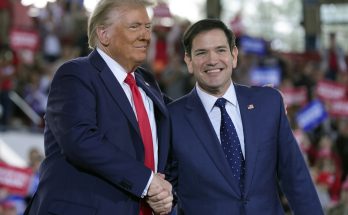
The coronavirus pandemic has posed formidable challenges for all regions in the world, including the oil-rich Middle East. At the same time, the pandemic has also turned into a playground for power play between competing powers. The Middle East is no exception. In this wide-ranging conversation with Manish Chand, CEO & Editor-in-Chief, India and World & India Writes Network, Amb. Anil Triguanyat, India’s former ambassador to Libya and Malta, underlines that the GCC countries have been much better in deploying medical and other recourses in combating the pandemic. Looking ahead, Amb. Trigunayat, Distinguished Fellow, VIF, and Advisor, India and the World, argued that India, during the handling of pandemic and global digital outreach by PM Modi, has established her leading credentials even more and this would provide a much smoother platform for important initiatives.

Q) In your assessment, how has the Middle East/West Asia region handled the coronavirus pandemic?
A) West Asia, like the rest of the world, has been equally unprepared for the corona pandemic. Iran has been the worst affected as it was among the first countries to be affected. Iran’s situation has been compounded by severe and crippling sanctions. The GCC countries have been much better in deploying medical and other recourses even though Saudi Arabia, the UAE and Qatar have been leading in the number of cases as well as in post-pandemic effort.
Large expat population, especially blue-collar workers living under the “Kafala System,” have been the most vulnerable since maintaining of social distance is virtually impossible given their accommodation size, and the conditions they normally live in. Kuwait and Oman have also been suffering and are trying to cope up with the pandemic. The UAE has taken good lead in testing and containment protocols. While some countries introduced curfew and lockdown as well as social distancing and other norms in time, some others have still not done than which might have larger infections and unfortunate consequences. Many countries also closed and stopped congregations at mosques and places of worship, including the holiest of them in Mecca and Medina which is exemplary.
Q) The Gulf countries have been severely impacted economically by the pandemic as well as the worst oil slump in decades. Do you see a new economic order emerging in the region?
A) In fact, the Gulf and other hydrocarbon dependent countries have already been facing substantial decline in their revenues due to oil prices crash. This was further compounded by the OPEC+ discord, leading to further price cuts and oil glut in the market. In addition, there is significant demand contraction in India and China and other economies due to the pandemic, which has further created glut and led to lower crude prices impacting adversely on the economies and growth prospects of the Middle East countries, especially from the Gulf.
As the efficacy of the richer Western countries, including the US, was exposed during the fight against Covid 19, their reliability and dependency will become questionable.
Recession will diminish the financial muscle of the region and may delay their overseas investments and 2030 plans and major events that could have provided an impetus and greater global interest. One could easily see China trying to recover ground as it has consistently engaged with them across the spectrum. India has another chance of continuing with its close and strategic relations with the GCC countries. Russia has emerged a major force in the Middle East. New dynamic is emerging with Turkey playing a more prominent role in the region. The US influence in Iraq and the region might be diminished unless there are some changes in security policy introduced by the New Administration in the USA.

Q) The West Asia region is home to over 8 million-strong Indian diaspora. What has the Indian government and host governments in the region done for the safety of the Indian community from coronavirus?
A) I have always feared the prospect of evacuating Indians from the region either due to war or pandemic, as is the case this time. The Indian embassies and local associations, in tandem with the governments there, have been providing food and other assistance to Indians who have lost their jobs or the ones stranded due to lock down. Local governments are providing free medical treatment to infected individuals who might be in large numbers. They have also agreed to extend their visa status and waived penalties for overstay. A large number of Indians have lost their jobs or contracts have been closed or finished and they need to be brought back.
The Government has already assured them and while preparations are afoot in India to make logistical arrangements for their return, the Indian missions have already started tabulating and registering those wanting to come back. It is estimated that around 400,000-500,000 people may be wanting to leave. This would be the biggest ever evacuation and I have no doubt we shall able to pull it off. But what then is the key question that will have to be addressed by the state governments as a large chunk may not be able to return despite the fact that Indians are the preferred workforce there. But this is a force majeure situation with no one in control. As such we are looking at significant reduction in salaries in the Middle East post-Covid. Kuwait and UAE have offered to help in repatriation of the Indians. EAM Dr S Jaishankar has also been in touch with his counterparts to provide assistance and to ensure the welfare of Indians.
Q) In what ways can India and the West Asia region cooperate in combating coronavirus?
A) In my view this is the most important relationship and has been the greatest success of the foreign policy of PM Modi. In recent times, Prime Minister Modi has spoken to many leaders of the region and offered assistance while securing assurances for the welfare of the Indians. India has also sent rapid response teams and equipment and medicines as well as food supplies to the countries in the region. Kuwait, UAE, Bahrain and other countries have greatly appreciated Indian leadership and assistance.
India has acquired additional quantities of crude to replenish her strategic reserves and to beef up its supplies in response to the demarche made by various supplier countries from the region. We need to strategies our complementarities with the region by keeping the long-term goals and interests in mind. India, during the handling of pandemic and global digital outreach by PM Modi, has established her leading credentials even more and this would provide a much smoother platform for important initiatives.

Curated by India Writes Network (IWN) and India and the World magazine, The Corona Conversation explores global, diplomatic and geopolitical ramifications of the coronavirus pandemic with eminent diplomats, experts and thought leaders.

The interview series, anchored by Manish Chand, Founder-CEO, The Global Insights India (TGII) and IWN, focuses on pressing questions of the time, including the shape of a post-COVID world and a new kind of diplomacy that is needed to address the trans-national crises of this magnitude.
Author Profile
- India Writes Network (www.indiawrites.org) is an emerging think tank and a media-publishing company focused on international affairs & the India Story. Centre for Global India Insights is the research arm of India Writes Network. To subscribe to India and the World, write to editor@indiawrites.org. A venture of TGII Media Private Limited, a leading media, publishing and consultancy company, IWN has carved a niche for balanced and exhaustive reporting and analysis of international affairs. Eminent personalities, politicians, diplomats, authors, strategy gurus and news-makers have contributed to India Writes Network, as also “India and the World,” a magazine focused on global affairs.
Latest entries
 India and the WorldJune 26, 2025Operation Sindoor: India Sheds Restraint, Rediscovers Utility of Force
India and the WorldJune 26, 2025Operation Sindoor: India Sheds Restraint, Rediscovers Utility of Force India and the WorldJune 23, 2025BRICS summit in Rio to focus on Global South, local currency trade
India and the WorldJune 23, 2025BRICS summit in Rio to focus on Global South, local currency trade Africa InsightsJune 11, 2025New Opportunities in India-Japan Cooperation in Africa
Africa InsightsJune 11, 2025New Opportunities in India-Japan Cooperation in Africa India and the WorldMay 23, 2025Post-Operation Sindoor, India reminds Turkey, China of concerns and sensitivities
India and the WorldMay 23, 2025Post-Operation Sindoor, India reminds Turkey, China of concerns and sensitivities







